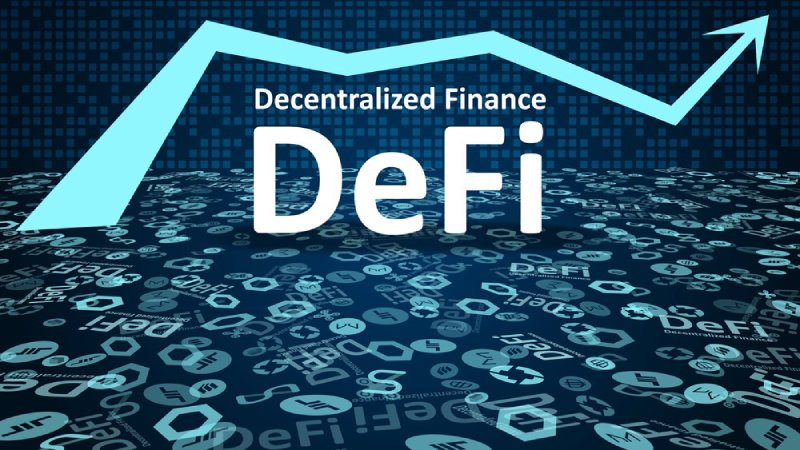
The future of banking and finance is being shaped by decentralized finance or DeFi. DeFi provides a transparent, easily accessible, and effective replacement for conventional financial systems by using blockchain technology. This article examines the fundamental ideas of DeFi as well as its key components, challenges, and its potential impact on banking and finance in the future.
DeFi is a movement that seeks to establish a transparent, permissionless, open-source, and decentralized financial services ecosystem that is accessible to all and runs decentralized. Using smart contracts on blockchain platforms, DeFi automates and carries out financial transactions without the need for middlemen, in contrast to traditional banking systems that depend on centralized organizations to handle transactions.
The terms of the agreement between the buyer and seller are directly written into lines of code in smart contracts, which are self-executing contracts. They do not require middlemen because they automatically enforce and carry out these terms.
Platforms known as decentralized exchanges, or DEXs, let users trade cryptocurrencies with one another directly without the need for a central body to handle trade facilitation. When it comes to security and privacy, they outperform centralized exchanges.
Users can lend or borrow cryptocurrency using decentralized lending and borrowing platforms, doing away with the need for a conventional financial middleman. These platforms automate the lending and borrowing process with smart contracts, which minimize paperwork and expedite transactions.
Other significant DeFi applications are yield farming, which provides liquidity to decentralized exchanges in exchange for rewards, staking, which locks up cryptocurrency to support a blockchain network and earn rewards, and insurance, which enables users to safeguard their assets against various risks.
DeFi has a lot of benefits, but it also has risks and challenges. Security is one of the main issues because smart contracts can be hacked and have bugs. DeFi’s growth is also threatened by legal and regulatory uncertainties because many governments are still figuring out how to govern this new technology. Furthermore, users with limited financial resources may find DeFi less accessible due to scalability issues and high gas fees on blockchain networks.
DeFi is made possible in large part by blockchain technology, which offers a transparent and safe means of recording transactions. Because all transactions are recorded on an unchangeable, tamper-proof public ledger, blockchain ensures that bad actors can rarely manipulate the system. Furthermore, smart contracts can be used with blockchain to automate and enforce terms of agreements, thereby lowering the need for mutual trust.
DeFi has become increasingly popular in recent years, and billions of dollars worth of value has been locked up in its protocols. Numerous factors, such as the rising demand for decentralized financial services, public interest in blockchain technology, and the possibility of large returns provided by DeFi protocols, can be credited for this growth. However, problems with user experience and regulatory uncertainty continue to prevent DeFi’s widespread adoption.
In the future, DeFi could completely transform the banking and finance sector by lowering the cost of financial services, boosting the efficiency of financial transactions, and facilitating greater financial inclusion. DeFi will need to overcome its present obstacles in addition to carrying on with its innovation and evolution if it is to reach its full potential. As blockchain technology continues to advance and interest from institutional and retail investors rises, the future of banking and finance appears to be becoming more decentralized.
DeFi is a decentralized, inclusive alternative to conventional banking systems that signifies a paradigm shift in the financial sector. DeFi keeps expanding and innovating despite obstacles like security and regulatory concerns, promising a time when financial services will be more widely available, effective, and transparent.
Liverpool, UK—House of Spells and Comic Con Liverpool are once again collaborating to bring the… Read More
Introduction In India's booming EdTech space, there's one name that's making waves among Telugu students… Read More
In litigation, often, the difference between winning and losing comes down to strategy. Although facts… Read More
Instagram creators now have a new tool to try if they're searching for a free… Read More
A free tool to help you boost local SEO and attract more clients is your… Read More
In today’s fast-paced digital world, online shopping has become more than just a convenience, it's… Read More